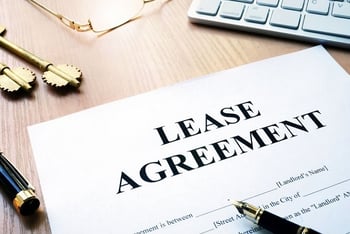
Purchasing a dental practice has the potential to be the best thing you have ever done for yourself professionally. Or it could be the most stressful thing which is why we want you to know about which contingencies are important and what they mean.
When you make an offer to purchase a dental practice, you must include a good-faith deposit, often referred to as “earnest money.” This is usually based on a percentage of the amount of the offer. It is called earnest money because it shows you are "earnest," or serious, about wanting to purchase the practice.
That is not all, though. Before you sign the final papers and become the proud owner of the new practice, there are some definite conditions that must first be met. To make sure these terms are met, you include them in your offer as contingencies. All contingencies must be clearly spelled out in your offer and purchase agreement.
A contingency is an event that must occur or a condition that must be met for the transaction to be completed. If the specific event does not occur, or the condition is not met, the offer to purchase is void. The purchaser is relieved of the obligation to complete the sale. Any earnest money deposited by the purchaser is returned.
There are some contingencies that should be included in every purchase agreement to purchase a dental practice. Some dental lawyers recommend that these contingencies should be listed as early as in the initial Letter of Intent. At a minimum, they must be listed in the offer to purchase and in the purchase agreement.
Each contingency should have a deadline for its compliance. For example, the contingency for obtaining acceptable financing should say that acceptable financing will be obtained by x date. If that date comes and goes with no financing obtained, the agreement is void.
There are some contingencies common to almost all purchases of dental practices.
Due diligence is possibly the most important part of purchasing an existing dental practice. Due diligence will verify that the practice you are purchasing is as it is represented to you. For example, all financial records are in order, assets and liabilities are as represented, there are no outstanding undisclosed or unreasonable liabilities, no legal issues are confronting the practice, all legal documents are as they should be, and licenses and permits are in order.
Although you engage in some due diligence before making your offer, you need to make the offer contingent on continuing and completing your due diligence exams.
Obtaining financing for the practice purchase is more than just finding a bank that will loan you the money. The contingency should specifically state that it is contingent on you being approved for a loan of a certain amount, with a cap on the interest rate you are willing to accept, with terms concerning the number of years for payback.
If you fail to spell out the financing terms upon which the sale is contingent, you could be forced to close the deal with a sky-high interest rate or, at a minimum, lose your good faith deposit.

Carefully examine the existing lease. Make sure it allows for transferring the lease to you, the new owner of the dental practice, and that you are comfortable with the existing lease terms. If there is more than one year left on the lease, the purchase should be contingent on the landlord’s willingness to renegotiate the lease on favorable terms to you and on terms that will be acceptable to the bank that is carrying your loan.
Determine what lease terms are agreeable. Be specific. You want more than just the landlord saying, “Sure. We’ll renegotiate.” You want to include a specific term you are expecting to receive in the renegotiation. For example, a statement from the landlord like, “I will be willing to negotiate a 5-year lease with a 2-year option to renew.”
One aspect of your due diligence includes inspecting the books and records of the existing practice. This is generally not done before the offer is made, which is why it is included as a contingency.
Buyers do not want to go through the time and expense of examining the books of a practice before an offer only to have done so in vain because there is no possible meeting of the minds on a purchase price and terms of a sale.
Sellers do not want to allow this review prior to receiving a serious good-faith offer from a potential buyer. Sellers are concerned that they may be releasing confidential information to a competitor who really has no interest in the purchase of the practice.
It seems this should be a given, but make sure it is a contingency of your purchase that all equipment is in good working condition. If you fail to include this term, you could show up for your first day of practice in your new environment only to discover the X-ray machine does not work. If you have not included as a contingency that all equipment must be in working order, you now must invest thousands of dollars in equipment before you even make it to your second day as a dental practice owner.
Your attorney or consultant will help you with knowing which licenses and permits are required for you to own a dental practice in your state and what local ordinances might apply to your office location. Your offer must be contingent on you obtaining these or you could be saddled with ownership of a practice for which you are not licensed to practice!
The goodwill of a practice includes the reputation of the practice owner and that patients seek out the particular practitioner based on his or her unique skills. If goodwill is included in part of the purchase price, you do not want the seller to move down the street, advertise the new location, and attract the former patients to the new practice location instead of to the practice you just purchased.
A non-compete clause is your answer. This clause must be carefully drafted by an experienced attorney or it won’t be enforceable. In California, such a non-compete clause is only enforceable if the purchase of the dental practice included the goodwill of the practice.
Even then, the non-compete clause must be narrowly defined and restrict the seller only from practicing in a specific and reasonable geographic area for a specific and reasonable amount of time. The seller’s right to practice dentistry, in general, may not be restricted.
If the seller stays on with you as an associate or employee for a time after the purchase, the non-compete clause should begin on the seller’s last date of employment with you, not on the date the purchase was completed.
If one contingency is not met, you as the purchaser have the option of canceling the offer and having your good faith deposit returned to you. You may also make a new offer and begin the negotiation process with the practice owner as though starting from the beginning. Or move on and continue your search for a dental practice to purchase.
If you are considering the purchase of a dental practice, your offer must include contingencies specifically articulated in order to protect your reputation and your good faith deposit. With the help of experienced legal counsel, you can be comfortable knowing you have made the best decisions possible relating to your new venture.
Contact us today at Dental & Medical Legal Counsel to schedule a complimentary consultation with dental attorney Ali Oromchian.

Stay updated with industry news!
1904 Olympic Blvd, Suite 240
Walnut Creek, CA 94596
Phone: 925-999-8200
Fax: 925-884-1725
frontdesk@dmcounsel.com
| Monday | 8:00AM - 6:00PM |
| Tuesday | 8:00AM - 6:00PM |
| Wednesday | 8:00AM - 6:00PM |
| Thursday | 8:00AM - 6:00PM |
| Friday | 8:00AM - 6:00PM |
| Saturday | Closed |
| Sunday | Closed |